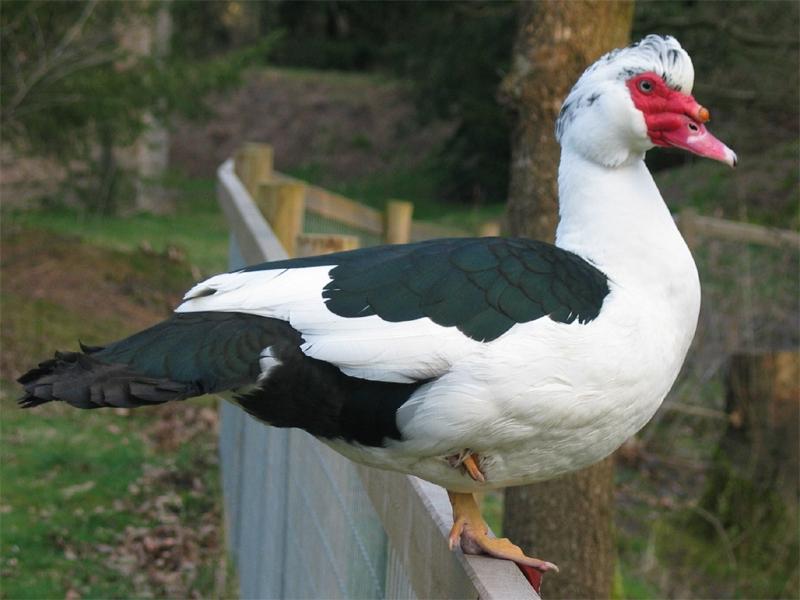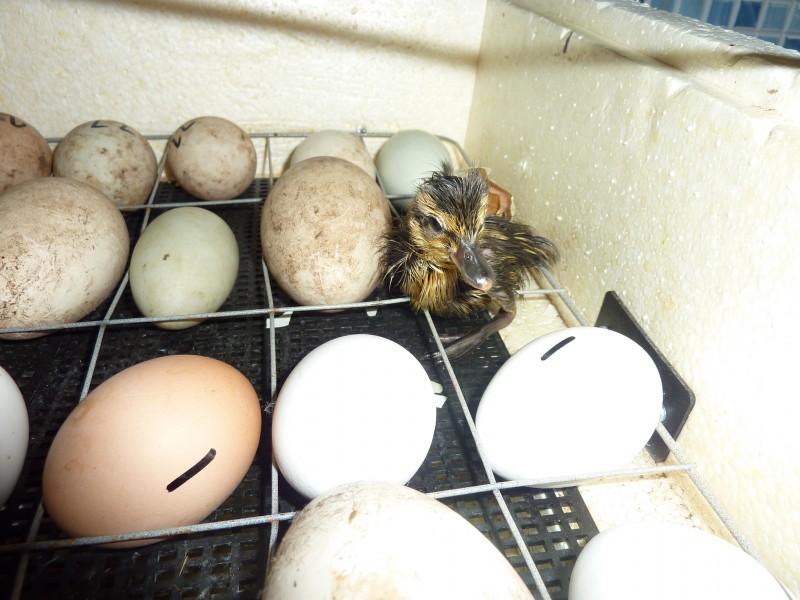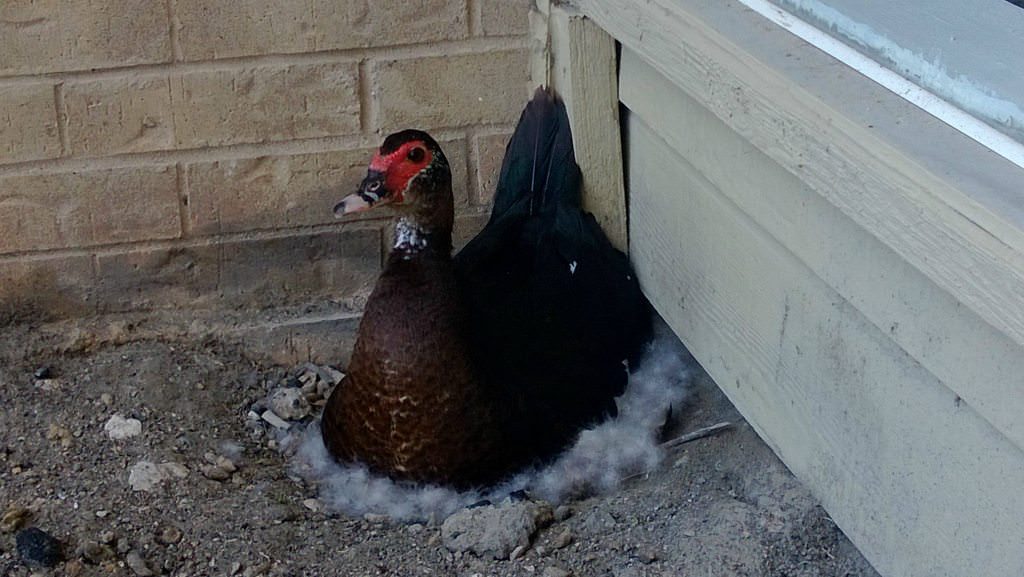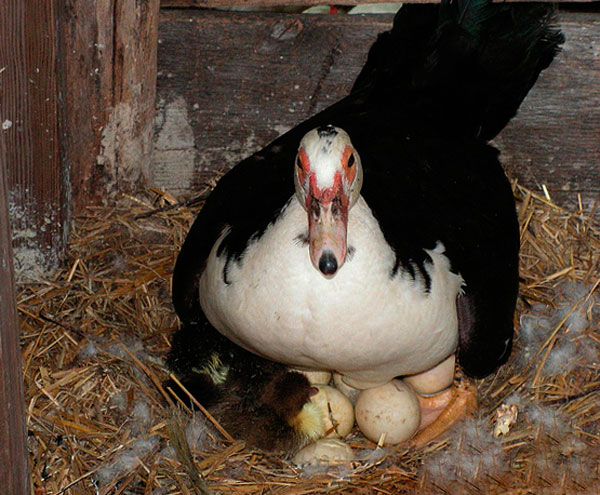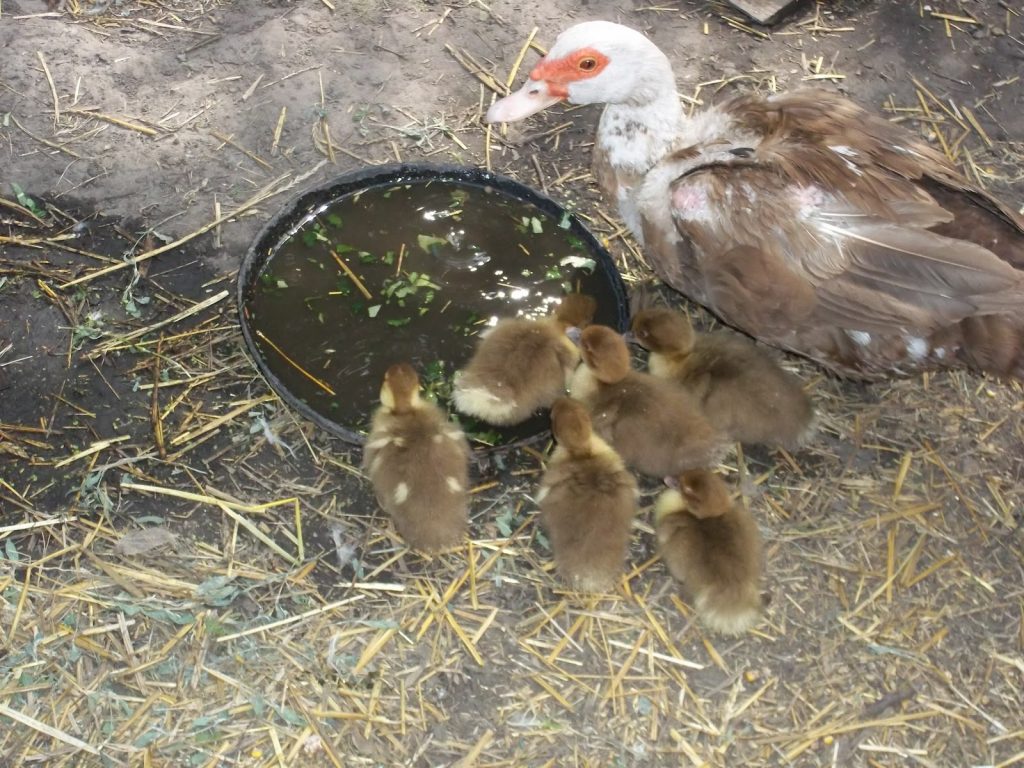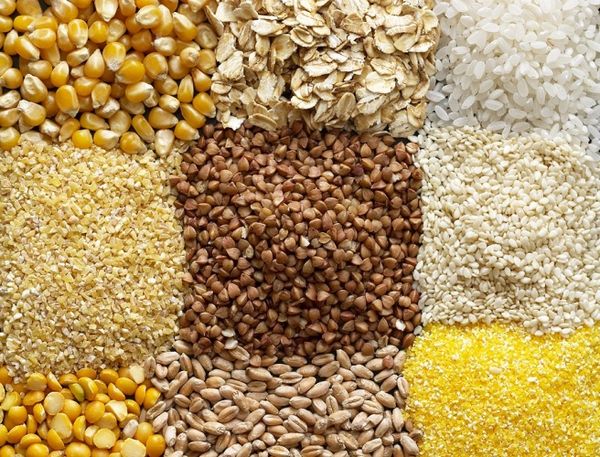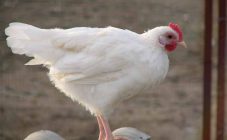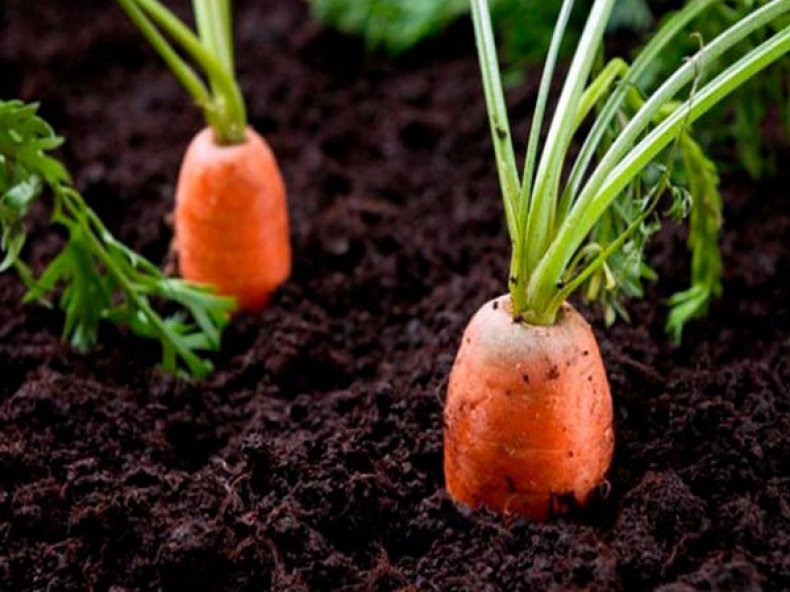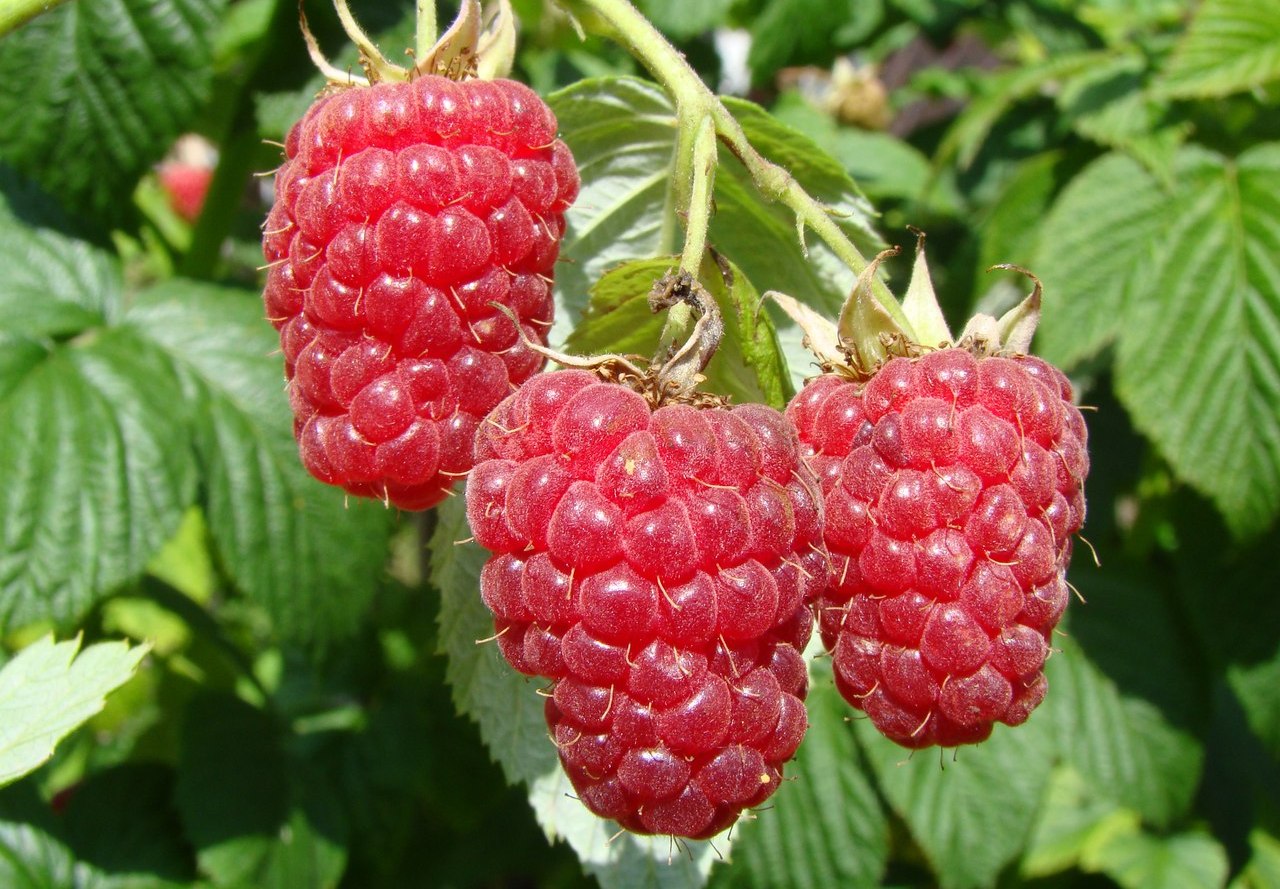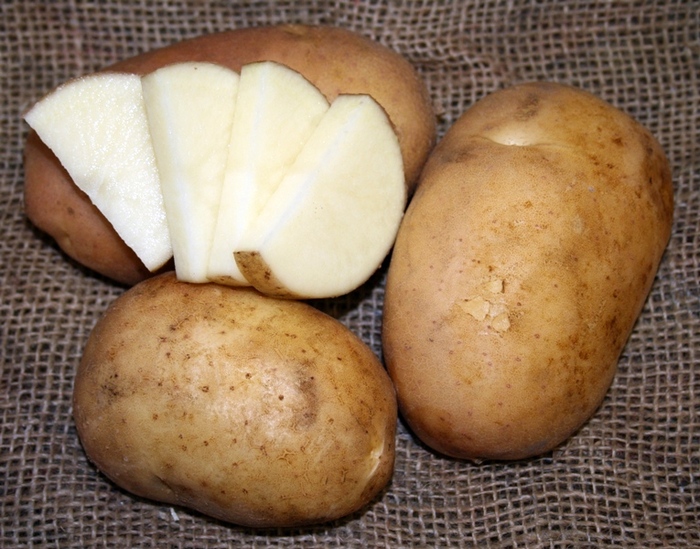Content:
Indoor (musky) is an attractive bird for a home farm due to its unpretentiousness. These quiet large birds grow well, perfectly forage in the pasture in the summer and have not lost their incubation instinct, which allows them to get their own ducklings for feeding. How many Indo-duck hatches eggs and how to care for a bird during this period is described in the article.
When Indo-Dogs start to rush at home
The bird reaches sexual maturity by 6 - 7 months, but the beginning of oviposition depends not only on the age of the bird. If young ducks are kept in a cold barn, without additional lighting in winter, the beginning of laying, regardless of age, is postponed until spring.
In a poultry house with a temperature of at least +15 degrees and lighting at 10 - 11 o'clock, the Indoor will be brought in no later than 8 months.
During the year, the musk duck lays about a hundred large eggs with dense shells. As a rule, she can hatch chicks twice in the summer. This happens in the spring: in April - May and in August.
The first eggs laid by a pullet are not suitable for hatching - they will be empty (unfertilized). One female can hatch only 13 - 18 pieces, she will not cover a larger number with her body and they will freeze.
How many days does an Indo-woman sit on laid eggs?
The poultry farmer needs to know exactly how much of the indow is sitting on the eggs in order to properly plan the timing of receiving the young. After all, it makes no sense to plant a hen on a nest at the end of September, the ducklings will be born too late, it will be difficult to raise them due to the arrival of cold weather.
Depending on the temperature in the room during incubation, the period for emergence of chicks ranges from 30 to 36 days. On hot summer days, the maturation of the embryo accelerates, in cool times it slows down.
Indo-woman sat on eggs, what should I do?
The main task of the hen owner is to provide the bird with comfortable conditions for incubation. No matter how many days the musk duck sits on the eggs, it should be warm and safe.
Long before the start of laying for the bird in the hen house, comfortable nests are prepared. For mutees (musks), houses without a front wall are hammered out of boards or plywood. House size 40 cm * 60 cm, height 40 cm.
If it is assumed that the duck will be used as a brood hen, free space is left near the nest for setting up a fence. When the bird starts hatching, it is fenced off from the general herd so that the drake and other females do not interfere with it. A bowl of food and a drinking bowl are placed nearby.
A layer of sawdust is laid inside the nest, and tender hay or oat straw (it is soft) is placed on top.
During the height of the clutch, all eggs from the nest are taken and stored in a cool room, lying on the other side every day. One egg is left in the nest, marked with a simple pencil, as bait for the female to lay in one place.
The signal of readiness to sit on eggs will be:
- a large amount of fluff in the nest;
- the bird sits with its feathers spread out and squeaks subtly;
- on attempts to remove it from the nest pinches.
The first chick of the brooding hen begins to hatch already on the 30th day of incubation. At this time, the squeak from under the laying hen is clearly audible. You can't touch anything with your hands, no matter how much you want to look at the baby!
Often, novice poultry farmers are worried about the question: how long will an Indo-female still incubate eggs if the first chicks have already hatched? Will the hen leave the rest and leave the masonry? It is impossible to answer this question unequivocally. If a duck is a caring hen and a mother, high-quality eggs are laid under it - hatching of all chicks will take no more than two days. During this time, the first chicks will not have time to get hungry and will not encourage the mother to lead them to look for food, leaving the nest.
Sometimes it happens that the exit of the ducklings is delayed. In this case, the dried babies are taken from the hen and placed in a box, providing them with heat, food (boiled crushed egg) and water. When the last duckling hatches, the shells are removed from the nest, the chicks are returned to the mother for further education.
Why the Indo-woman doesn't want to sit on eggs
There are several reasons for the lack of hatching instinct:
- old age (the old bird can still rush, but it no longer strives to breed ducklings);
- uncomfortable nest or inappropriate place for it (too light, noisy, cold);
- unsuitable time of the year - most often ducks sit down in spring and summer, less often in autumn;
- lack of fatness of the bird - during incubation, the duck eats little and noticeably loses weight.
The owner of a duck farm should review the conditions for keeping and feeding the poultry and eliminate the reason that prevents the duck from sitting on the nest.
Why does a duck throw eggs on the floor from the nest?
Sometimes it happens that, having come to check his hen in the morning, the owner sees one or two eggs near the nest, already cold. Why does a duck throw eggs on its own?
The most likely reason is that the duck throws out empty (unfertilized) eggs or those in which the embryo died at an early stage. In the process of development, the embryo begins to generate heat outward through the shell, the duck feels this. The egg is empty or cold with a dead embryo. Instinct tells the bird to get rid of the unnecessary, so as not to waste its precious warmth.
Another common reason for a duck to throw eggs or even leave the nest is that the hen is too disturbed during incubation. This is the sin of inexperienced poultry farmers. They daily inspect and correct the nest, touch the clutch. This cannot be done! The bird itself takes care of the cleanliness and safety of the nest, itself turns the eggs. All that the owner of the muscovy duck has to do is provide the bird with drink, food and rest.
Helpful advice from experienced poultry farmers
The best time to hatch muscovy ducklings, given the long incubation period - from early May to late July. The August ducklings will still find warm days, they will grow up in the sun and will get strong enough by the onset of cold weather.
Before the start of the breeding season, you need to feel the ducks and make sure they are fat. Thinness, like excess fat, negatively affects laying and egg quality.
In the process of incubation, the duck leaves the nest once a day - goes to the toilet, eats and drinks, bathes. She usually does this in the morning. While the duck is busy with its own business, the poultry farmer can seize the moment and check the nest, inspect the clutch.
The hen is fed with grain - oats, barley or wheat.This is a hearty food that allows the bird to fill up a crop and not feel hunger until the next day. The hen does not need grass and vegetables.
They are in no hurry to release the duck with the brood into the pond. The fact is that little ducklings still have fatty glands, their fluff quickly gets wet. Once in the water, the duckling can drown. A mother with chicks is released into a deep reservoir no earlier than 3 weeks after hatching.
Some breeders take chicks from the duck and immediately lay in a new batch of eggs for incubation. It is undesirable to do this, continuous incubation of chicks for two months too depletes the bird. The duck can die.
Often two Indo-girls sit on one nest. They can be seated in separate houses, or they can be left to incubate in a couple, if the girlfriends do not fight and the area of the nest allows you not to suppress the masonry. After hatching, the ducklings are left in the care of one duck, the second will soon begin to rush.
